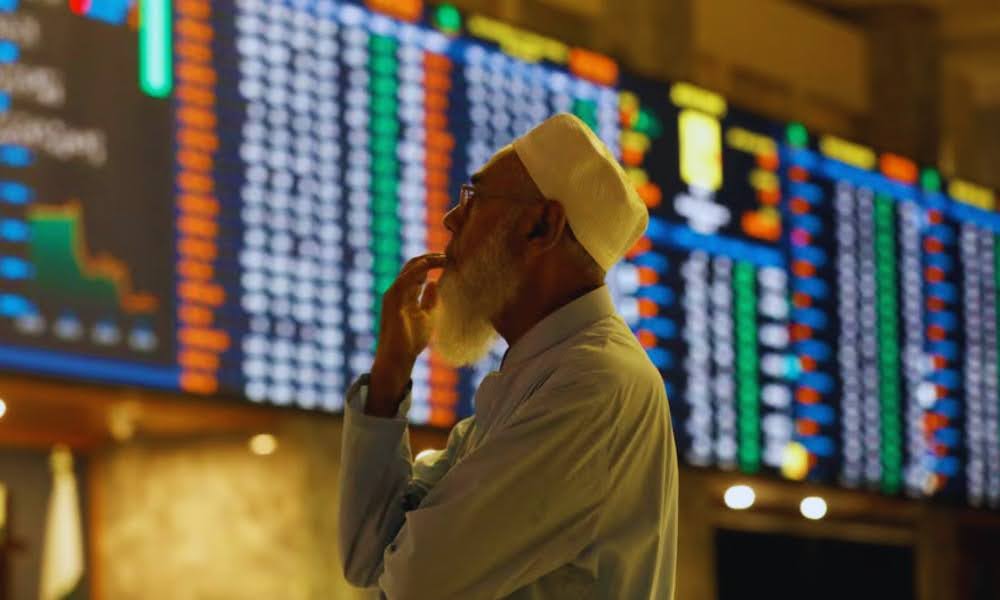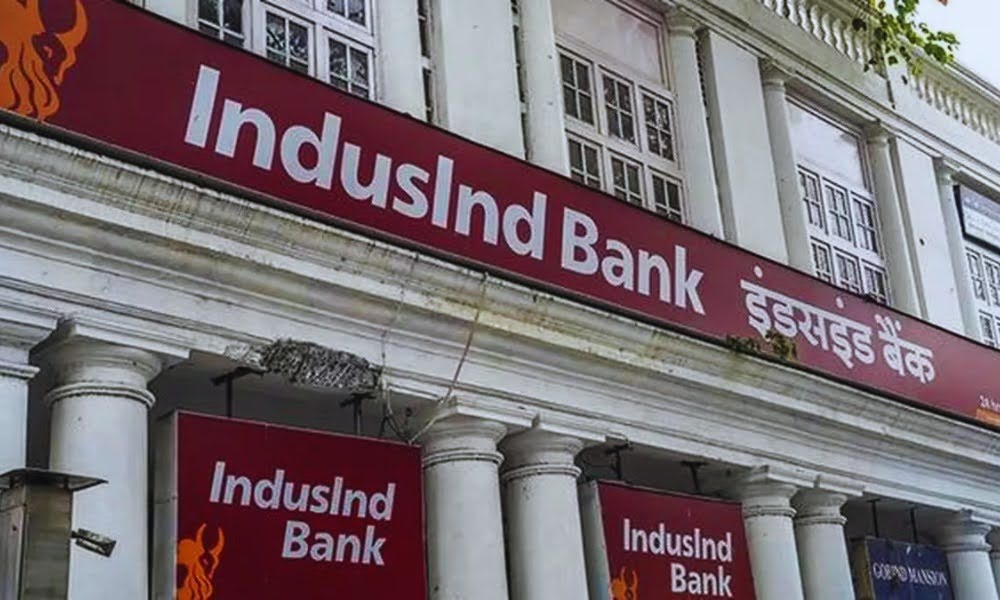Pakistan Stock Exchange in Freefall: KSE-100 Tumbles Amid Fears of Indian Military Escalation

Bears dominated the Pakistan Stock Exchange (PSX) on Wednesday as the market experienced a massive sell-off, with shares plummeting over 3,500 points.
Analysts linked this sharp decline to rising investor anxiety over potential Indian military action against Pakistan.
KSE-100 Index Records Sharp Declines Throughout the Day
The benchmark KSE-100 index began its downward spiral early in the trading session. At 9:53am, it had already dropped 1,717.35 points or 1.5%, settling at 113,154.83 compared to the previous close of 114,872.18.
By 10:38am, the index slipped further by 2,073.42 points or 1.8% from the last close.
The selling pressure intensified by 1:50pm, dragging the index down by 3,255.42 points or 2.83%. Eventually, the market closed at 111,326.57, marking a total drop of 3,545.61 points or 3.09%.
Analysts Blame Escalating Geopolitical Uncertainty
Topline Securities CEO Mohammed Sohail attributed the market downturn to “news of likely attack in next few days.” His view was echoed across the financial community.
Awais Ashraf, director of research at AKD Securities, stated, “Investors are worried about potential Indian military action against Pakistan, concerns that have intensified following the information minister’s press briefing.”
Yousuf M. Farooq, director of research at Chase Securities, similarly noted that the market reacted negatively to the “statement last night suggesting that India may take military action within the next 24–36 hours.”
Sana Tawfik, head of research at Arif Habib Limited, also emphasized that the decline was largely driven by tensions between India and Pakistan.
Information Minister Warns of Imminent Military Action
The panic in the market followed comments made earlier in the day by Information Minister Attaullah Tarar. He said “credible intelligence” suggested that India was preparing for military action against Pakistan within the next 24 to 36 hours.
These statements come after last week’s Pahalgam attack in occupied Kashmir, which India blamed on Pakistan without presenting evidence. In response, the Indian government granted its military “operational freedom” to respond.
Tarar stated: “Pakistan has credible intelligence that India intends carrying out military action against Pakistan in the next 24-36 hours on the pretext of baseless and concocted allegations of involvement in the Pahalgam incident.”
He further said that Pakistan completely rejected the “Indian self-assumed hubristic role of judge, jury and executioner in the region,” calling it “reckless.”
Market Reversal After IMF Optimism Short-Lived
Just a day prior, the PSX had seen a recovery after the International Monetary Fund (IMF) confirmed that its Executive Board would meet on May 9.
The agenda includes discussions on Pakistan’s $1.3 billion climate resilience loan programme and the first review of the ongoing $7 billion bailout package.
However, the optimism was quickly replaced by fear, as geopolitical concerns took center stage.
Pakistan’s Dollar Bonds Take a Hit
Investor concerns were not limited to the stock exchange. Pakistan’s international bonds also declined significantly after Tarar’s press conference.
The 2036 bond experienced the steepest fall, dropping 1.3 cents to 71.85 cents on the dollar, according to Tradeweb data. The bid-ask spreads of around 1 cent indicated low market liquidity.
Indian Markets React Cautiously Amid Tensions
Meanwhile, Indian equities remained largely flat. Gains by heavyweight HDFC Bank helped counterbalance losses from Bajaj Finance and overall regional tensions.
At 10:43am, the Nifty 50 was down by 0.05% at 24,324, while the BSE Sensex lost 0.07% to reach 80,236.6. Both indices fluctuated between 0.2% gains and 0.2% losses during early trade.
“For now, geopolitical tensions (with Pakistan) have overtaken (US) tariffs in investors’ minds,” said Anita Gandhi, founder and head of institutional business at Arihant Capital Markets.
Reuters also reported that Indian Prime Minister Narendra Modi had given military leaders the freedom to respond to the Pahalgam attack.
Broader Indian Market Sees Mixed Performance
India’s Nifty volatility index rose in five out of the last six sessions following the attack. On Wednesday, six of the 13 key sectors recorded losses. Small- and mid-cap stocks fell by 0.6% and 0.1% respectively.
Bajaj Finance, a non-bank lender, dropped 5.4%, leading the losses on the Nifty index despite reporting a rise in quarterly profit. Brokerages cited weak pre-provision profits and higher credit costs as the main concerns behind the stock’s fall.









